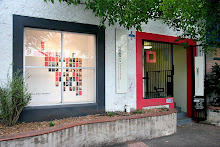Project Brief:
Immemorial offers an extraordinary cultural exchange within a current social and political context, endeavouring to invigorate dialogue between cultures by way of an amalgamation of research, artistic and critical practice within a curatorial construct.
The curatorial rationale of immemorial seeks to investigate commonalities of people from diverse backgrounds and cultures, as they consider their ancestral histories and their present notions of cultural identity.
Too often, cultural identity concentrates on the ‘differences’, particularly in the current global political environment; concepts of ‘difference’ can at times be an irrational construct.
Immemorial aims to break down these notions of ‘difference’ by transplanting ancestral investigations and common accounts into an exploratory visual language, invigorating discourse on cultural perspectives.
The curators, in developing the rationale, believe family stories of journeys, displacements, triumphs, interruptions and secrets transcend political boundaries as recognisable common threads.
Throughout history people have migrated or dispersed by choice, force or need. This can have a significant influence on the understanding of cultural identity. As historical boundaries change, and political borders alter, one’s identity can be affected.
The rationale incorporates a much broader notion of cultural identity, many family histories have universal elements; these elements are not confined nor controlled by geographic or sovereign boundaries.
The research component is a crucial element of the project. It is designed to maintain the integrity of the collaboration and to give the artists a common reference point from which to explore their individual response to the rationale.
The curators will commission the artists to develop and produce new works in response to their particular research findings. The project will culminate in a public exhibition of these works, and including a series of public programs.
Steve Eland
